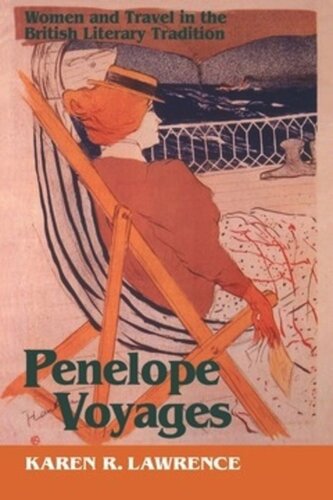

Most ebook files are in PDF format, so you can easily read them using various software such as Foxit Reader or directly on the Google Chrome browser.
Some ebook files are released by publishers in other formats such as .awz, .mobi, .epub, .fb2, etc. You may need to install specific software to read these formats on mobile/PC, such as Calibre.
Please read the tutorial at this link: https://ebookbell.com/faq
We offer FREE conversion to the popular formats you request; however, this may take some time. Therefore, right after payment, please email us, and we will try to provide the service as quickly as possible.
For some exceptional file formats or broken links (if any), please refrain from opening any disputes. Instead, email us first, and we will try to assist within a maximum of 6 hours.
EbookBell Team

4.1
10 reviewsLooking at travel writing by British women from the seventeenth century on, Karen R. Lawrence asks an intriguing question: What happens when, instead of waiting patiently for Odysseus, Penelope voyages and records her journey—when the woman who is expected to waitsets forth herself and traces an itinerary of her own?
Lawrence ranges widely, discussing both fiction and nonfiction and traversing the genres of travel letters, realistic and sentimental novels, ethnography, fantasy, and postmodern narrative. In examining works as dissimilar as Margaret Cavendish's rendition of the Renaissance adventure narrative and Christine Brooke-Rose's postmodernist Between, she explores not only the significance of gender for travel writing, but also the value of travel itself for testing the limits of women's social freedoms and restraints.
Lawrence shows how writings by Frances Burney, Mary Wollstonecraft, Sarah Lee, Mary Kingsley, Virginia Woolf, and Brigid Brophy reconceive the meanings of femininity in relation to such apparent oppositions as travel/home, other/self, and foreign/domestic. Despite the differences-historical, generic, political-among these writers, Lawrence maintains, they share common insights. Their accounts overturn the dichotomy between adventure and domesticity, demonstrating something illusory within both the stability of home and the freedom of travel.